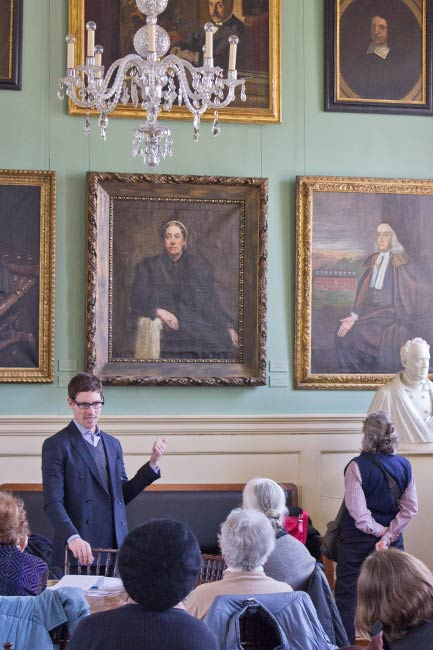Black Switzerland represents a unique intersection of identity and culture within the heart of Europe, challenging perceptions about race in Switzerland. In his insightful new book, Jessie Cox explores the complexities of being Black in this largely homogenous nation, where discussions about race have often been silenced. Through his research, he delves into the influences of Afrofuturism and the emerging discourse surrounding Black studies, aiming to shed light on the intricate realities of anti-Blackness in Swiss society. Cox’s work not only highlights the struggles faced by Black individuals but also uncovers the rich imaginative potential embedded within Black lives. By opening this critical dialogue on Black Switzerland, Cox shines a spotlight on the importance of understanding race in every facet of cultural expression, paving the way for deeper conversations and awareness in the broader context of racial equity.
Exploring the dynamics of race and identity in a predominantly white nation, Black Switzerland emerges as a crucial area of inquiry. This term encapsulates the experiences, challenges, and cultural contributions of Black individuals living in Switzerland, urging us to rethink traditionally confined narratives. In his latest publication, Jessie Cox offers an academic and artistic lens on these themes, reflecting on issues of systemic anti-Blackness and the significance of representation. The book serves as a catalyst for broader discussions in Black studies and highlights the transformative power of Afrofuturism as seen through the Swiss cultural landscape. By rewriting the discourse on race, Jessie Cox not only opens avenues for understanding but also celebrates the diverse identities within Swiss society.
Understanding Race in Switzerland
In his groundbreaking work, Jessie Cox challenges the societal norms surrounding the conversation of race in Switzerland, a nation where such discussions are often sidelined. By highlighting the undercurrents of racism and the unique experiences of Black individuals, Cox presents a nuanced understanding of how racial identity is perceived and addressed in a country known for its neutrality. His book, “Sounds of Black Switzerland,” serves as a critical examination of how race intersects with culture in an environment that has largely ignored the Black narrative.
Cox’s insights shed light on the implications of color-blindness and its role in perpetuating anti-Blackness within Swiss society. This refusal to acknowledge racial differences not only invalidates the lived experiences of Black individuals but also contributes to systemic discrimination in various sectors, including law, immigration, and public life. By unpacking these issues, Cox emphasizes the importance of recognizing and discussing race as a vital component of Swiss identity, challenging readers to consider the country’s complex social fabric.
The Emergence of Black Studies
With the release of “Sounds of Black Switzerland,” Jessie Cox positions himself at the forefront of Black studies, advocating for a broader understanding of Black identity within the Swiss context and beyond. The incorporation of Afrofuturism into his analysis allows Cox to explore alternative futures and creative expressions of Blackness, prompting a fresh discourse around race and cultural identity. This interdisciplinary approach invites scholars, artists, and activists alike to engage with new possibilities for representation and self-expression.
Cox’s work aligns with historical movements that have given rise to Black studies, echoing the sentiments of trailblazers who have fought for recognition and understanding of Black experiences globally. By referencing influential texts such as “Farbe bekennen,” he situates his arguments within a broader historical context, reinforcing the importance of examining how race and identity inform artistic expressions. His scholarly contributions underscore the significance of Black studies in understanding societal dynamics and fostering cultural awareness.
Black Switzerland: A Cultural Renaissance
Jessie Cox’s exploration of “Black Switzerland” unveils a cultural renaissance that challenges prevailing narratives about Black identity in the region. Through his avant-garde critique, Cox highlights the vibrancy of Black culture, infusing his analysis with references to contemporary Swiss artists and musicians. The inclusion of works by acts like the rapper Nativ not only emphasizes the richness of Black creativity in Switzerland but also illustrates the dynamic ways in which Black voices are asserting their presence within the cultural landscape.
By examining various forms of artistic expression, from music to visual art, Cox invites readers to recognize the powerful role that culture plays in shaping identity and community among Black individuals in Switzerland. This perspective serves as a reminder that Black experiences are not monolithic, but rather diverse and multifaceted, contributing to a richer understanding of what it means to be Black in a predominantly white society. It’s an invitation to embrace and celebrate the complexity of Black cultural identities in Switzerland and beyond.
The Role of Afrofuturism in Black Identity
Afrofuturism, a cultural movement synthesizing African mythology, science fiction, and technology, plays a pivotal role in shaping contemporary Black identity as explored by Jessie Cox in his latest work. By incorporating Afrofuturist themes into his narrative, Cox not only broadens the scope of Black thought but also provides a canvas for imagining futures that transcend historical narratives of oppression. This imaginative framework helps reconfigure how Black individuals occupy space in a predominantly Eurocentric society, encouraging a future-oriented perspective.
Cox argues that Afrofuturism is not just a genre, but a movement that encapsulates the struggle and resilience of Black communities across the globe. By envisioning alternate realities where Black lives are celebrated and honored, Afrofuturism empowers individuals to reclaim their narratives and envision their place in society. This transformative potential fosters a sense of belonging and connectedness, inspiring new generations to embrace their heritage while dreaming of a brighter future.
Addressing Anti-Blackness through Art
In his exploration of anti-Blackness, Cox emphasizes the profound impact of artistic expression in challenging systemic racism. By invoking powerful narratives and critiques through music and literature, he underscores the potential of art as a tool for resistance and social change. Consistently throughout “Sounds of Black Switzerland,” Cox intertwines the somber realities faced by Black communities with uplifting stories that celebrate their strength and creativity, illustrating how art can act as a conduit for dialogue and healing.
Moreover, Cox’s analysis of anti-Blackness examines the effects of erasure and invisibility within cultural and historical narratives. By confronting these challenges head-on, he calls for a critical reassessment of how Black experiences are represented and understood. Cox’s commitment to bringing these issues to light not only challenges contemporary societal norms but also encourages a collective movement towards acknowledging and dismantling the structures that perpetuate racial inequality.
Artistic Practice as a Space for Change
Cox’s assertion of artistic practice as a radical space for imagining new worlds underscores the transformative power of creativity. He advocates for harnessing the arts as a mechanism to forge new relationships and inspire social activism, urging artists and cultural practitioners to envision alternative futures that reflect more inclusive values. This perspective resonates with the ethos of Afrofuturism, which seeks to dismantle oppressive systems and promote cultural reimagination.
By integrating historical and contemporary artistic practices, Cox demonstrates that art has the inherent capability to foster dialogue around race and identity. This interchange not only raises awareness of social injustices but also cultivates communities united in the pursuit of equity and understanding. Embracing this radical potential allows for the cultivation of new narratives and connections, reaffirming the significance of art in shaping narratives of Black lives worldwide.
Music’s Influence on Racial Discourse
Music serves as a powerful vehicle for expressing identity and discussing race, a theme that Cox explores deeply in his work. Through the lens of various musical genres, he delves into how soundscapes can provoke emotions and ignite conversations about race, culture, and belonging. By analyzing the work of Black artists in Switzerland, Cox illustrates how music functions as both a form of resistance and a means of connection, transcending cultural barriers.
Cox’s mention of contemporary Swiss musicians like Nativ exemplifies the ways in which music can reflect societal shifts and the desire for change. As artists weave messages of hope and empowerment into their lyrics, they not only contribute to the broader discourse on race but also cultivate a sense of community and belonging among diverse audiences. This connection illustrates the potential of music to transcend language and cultural differences, fostering understanding and solidarity.
Challenging Color-Blindness in Society
One of the pressing issues addressed by Jessie Cox is the detrimental impact of color-blindness on conversations about race. This widespread mindset minimizes the significance of racial identities, leading to the erasure of unique experiences and perpetuating anti-Blackness. Cox argues that acknowledging the existence of race in discussions is vital for understanding the intricacies of social dynamics in Switzerland and beyond, as it allows for a more honest examination of privilege and systemic inequality.
By challenging the notion of color-blindness, Cox positions himself as a fierce advocate for the recognition of Black identities and experiences as critical to societal progress. In his view, meaningful discourse about race requires individuals to confront their biases and assumptions, fostering a more inclusive dialogue on identity and belonging. This recognition is essential for building a society that values diversity and seeks to redress historical injustices.
Imagining New Possible Futures
Cox’s exploration of Black identity also extends to the realm of future possibilities, where he envisions new frameworks for understanding Black life. By emphasizing the need for radical imagination, he encourages readers and creators alike to think beyond current limitations and envision a world where Black existence is celebrated and embraced. This forward-thinking approach echoes the principles of Afrofuturism, which imbues hope and creativity into narratives that have often been marked by struggle and adversity.
Ultimately, Cox challenges us to rethink our perceptions of Blackness and what it represents in contemporary society. By opening pathways for dialogue and artistic expression, he invites a collective exploration of future possibilities that highlight resilience, creativity, and the enduring spirit of Black communities. This vision serves as an inspiration not only for those directly engaged in discussions of race but for anyone seeking to understand and contribute to a more just and inclusive world.
Frequently Asked Questions
What is the significance of ‘Sounds of Black Switzerland’ in understanding race in Switzerland?
‘Sounds of Black Switzerland’ by Jessie Cox is significant as it opens a crucial discourse about Black identity and experiences in Switzerland, a nation where discussions about race are often limited. The book examines the nuances of Blackness, Afrofuturism, and the impacts of anti-Blackness, encouraging readers to consider the manifold aspects of cultural identity and belonging within the context of Black Switzerland.
How does Jessie’s Cox’s work contribute to Black studies in Switzerland?
Jessie Cox’s work contributes to Black studies in Switzerland by engaging deeply with themes of Blackness and cultural representation. Through ‘Sounds of Black Switzerland’, he provides critical insights into the historical and contemporary experiences of Black individuals in Switzerland, thereby helping to establish a foundation for future discussions and research in Black studies within this context.
What themes related to Blackness and Afrofuturism does Cox explore in ‘Sounds of Black Switzerland’?
In ‘Sounds of Black Switzerland’, Cox explores the themes of Blackness and Afrofuturism by analyzing cultural expressions and their imaginative possibilities. He discusses how these themes intersect with the realities of anti-Blackness and the importance of artistic practice in envisioning new worlds, thus highlighting the vibrant cultural contributions of Black communities in Switzerland.
How does Jessie Cox address anti-Blackness in Switzerland through his book?
In his book, Jessie Cox addresses anti-Blackness in Switzerland by discussing its roots in color-blindness and societal erasure. He contextualizes these issues within Switzerland’s judicial and immigration systems, demonstrating how they affect Black lives. Cox aims to shift the narrative from just focusing on violence to uncovering the broader experiences and creative potential of Black communities.
Why is it important to discuss race and Black lives in Switzerland according to Jessie Cox?
According to Jessie Cox, discussing race and Black lives in Switzerland is important to foster understanding and empathy. He argues that acknowledging and engaging with the experiences of Black individuals allows for a richer dialogue about identity, community, and cultural diversity, which is essential for social cohesion and mutual respect in a multicultural society.
What role does music play in the exploration of Black lives in Switzerland?
Music plays a pivotal role in the exploration of Black lives in Switzerland, as highlighted in Jessie’s Cox’s ‘Sounds of Black Switzerland’. Cox discusses how music serves not only as a form of cultural expression but also as a means to address social issues, inspire change, and connect communities, thus demonstrating the powerful intersection of art and activism within the Black experience.
How does ‘Sounds of Black Switzerland’ relate to broader Afro-European discussions on race?
‘Sounds of Black Switzerland’ relates to broader Afro-European discussions on race by situating Black experiences in a European context, particularly through references to influential works like ‘Farbe bekennen’. Cox connects local discussions in Switzerland with the ongoing dialogues in Afro-European studies, making it a valuable contribution to understanding race across the continent.
| Key Point | Details |
|---|---|
| Jessie Cox’s Background | Grew up in Switzerland and felt the lack of discussions about being Black. |
| Book Title | “Sounds of Black Switzerland” explores Black experiences and racial discourse in Switzerland. |
| Objectives of the Book | To initiate discourse on Black Switzerland and contribute to Black studies. |
| Key Themes | Blackness, Afrofuturism, anti-Blackness, color-blindness, and erasure. |
| Cultural References | Includes works by Nigerian Swiss composer Charles Uzor and Swiss artists like rapper Nativ. |
| Influential Works | References “Farbe bekennen” which initiated Afro-German studies and discussions on race. |
| Vision of Artistic Practice | Encourages use of artistic practice for envisioning new identities and relationships. |
Summary
Black Switzerland is an emerging discourse that seeks to elevate the voices and experiences of Black individuals in a nation where these topics are often overlooked. Jessie Cox’s “Sounds of Black Switzerland” provides a significant platform for examining the complexities of race and Black identity within Swiss culture. By intertwining music and critical race studies, Cox highlights the need for ongoing conversations that foster understanding and solidarity in the context of Black experiences not only in Switzerland but globally.



